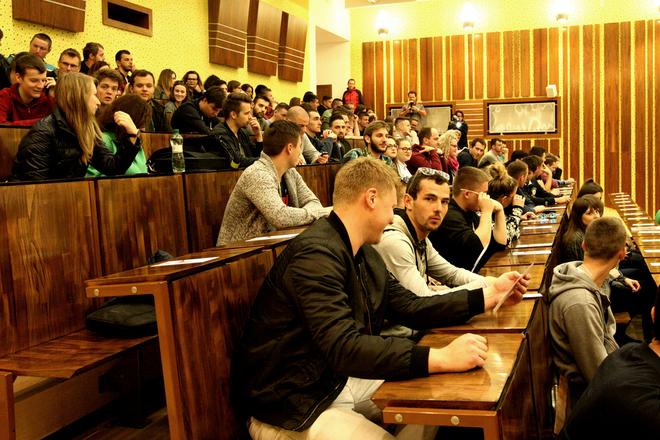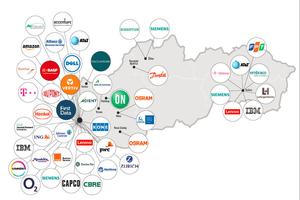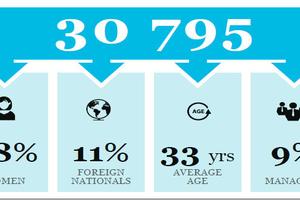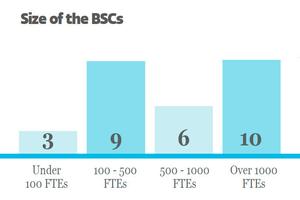What is a business service centre?
Business service centre (BSC), or shared service centre: an organisational unit responsible for the execution of specific tasks (for example finance & accounting, IT support, HR) supporting the core activity of the company
Business process outsourcing (BPO): involves contracting of the operations and responsibilities of specific business processes to a third-party service provider.
Source: Business Service Center Forum 2017 Survey
The business service sector in Slovakia has developed into one of the pillars of the country’s economy with prospects of further growth. To maintain momentum, individual business service centres (BSCs) cooperate with universities and business academia to provide graduates with the knowledge they need. The competitiveness of Slovak BSCs depends on the pool of available, highly-skilled and talented people. This is because the centres are either automating transactional activities with low-added value or conducting them in other locations in the world. As a result, business centres have become more technological and analytical.
“For a company that has the ambition of growing and hiring hundreds of new colleagues a year, an intensive cooperation with universities is a must,” Maroš Čuchta, head of Accenture’s Advanced Technology Center in Bratislava, told The Slovak Spectator.
In this way, the BSCs ensure graduates applying for positions have the knowledge the centres are looking for. Otherwise, employees must go through extensive training after joining the company.
The cooperation between BSCs and universities is extensive. The centres cooperate with universities and their faculties in economics, IT and the development of soft skills. Some university partners include the University of Economics in Bratislava, the Slovak University of Technology in Bratislava, Comenius University, Matej Bel University in Banská Bystrica, Žilina University, and the Technical University of Košice.

The most common type of cooperation involves the specialised design of curricula, followed by lectures, seminars and workshops lectured by specialists and managers of individual centres. They also provide consultation for student projects, bachelor and diploma works. Moreover, they offer the best students internships as well as the opportunity to work at the centre part-time during their studies. The centres even organise conferences and competitions and attend job fairs.
“Our goal is to forge a better connection between university students and real business environments, so students are better prepared and qualified to work for shared service centres,” said Marián Užík, director of Johnson Controls International’s Bratislava Business Centre.
Such cooperation is welcomed by universities because it helps them determine what skills their students will need and allows them to adjust their curricula accordingly.
“Cooperation with BSCs enriches the education of our students and highlights the themes and priorities of these companies,” Ján Papula of Comenius University’s Management Faculty told The Slovak Spectator. “Such interconnection helps students decide on their future specialisation as well as their future career.”
Moreover, the movement of BSCs towards more sophisticated activities requires employees have more complex, specialised knowledge, which students of Comenius University’s Management Faculty receive, added Papula.



 Illustrative stock photo (source: Sme)
Illustrative stock photo (source: Sme)


